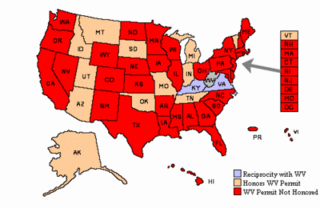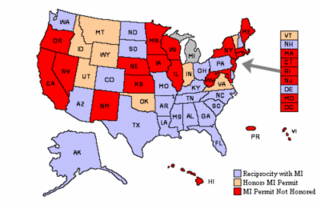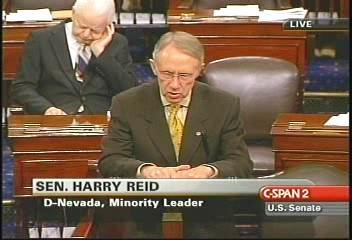This was the question that immediately came to mind a few weeks ago when I was contacted by a friend from Delaware with a question about West Virginia's gun laws and did some quick research.

West Virginia is one of 38 states that generally allow most law-abiding citizens to carry concealed handguns (and other deadly weapons in some states) without undue restriction. In fact, we were one of the leaders in liberalizing concealed carry laws when our "shall issue" concealed weapon permit law was passed in 1989. Upon passing a criminal background check and completing a basic handgun safety course, any adult resident of West Virginia shall be issued a concealed handgun license by the county sheriff.
In the late 1990s, as most states joined the "shall issue" concealed carry permit bandwagon, West Virginia and most other "shall issue" states enacted laws to permit the entry of "reciprocity" agreements with other states to recognize each other's licenses. 31 of the 34 "shall issue" permit states plus Alaska (which no longer requires a concealed carry permit but issues them so Alaskans may carry in other states or be exempt from the NICS check when purchasing a gun at a gun dealer) and Delaware (which is a restrictive issue state) have reciprocity agreement laws. Over a dozen states have varying forms of unilateral recognition laws, whereby all or almost all other states' licenses re recognized without a reciprocity requirement. In 2000, West Virginia entered into reciprocity agreements with Kentucky and Virginia. That's where we stopped.

All the information for this post comes from either the NRA's Guide To Interstate Right-To-Carry Reciprocity And Recognition and Packing.org. On the NRA site, clicking on a state will show both the other states from which that state honors licenses and the other states that honor that state's licenses. Packing.org shows, for each state, the states with which that state has a reciprocity agreement plus the states that otherwise recognize that state's licenses.
I researched the laws of West Virginia and several other states--most notably those whose licenses are most widely recognized in other states--and found few differences in the laws that would justify differences in recognition. South Carolina refuses recognition to states that do not require a very extensive handgun training class rather than the more basic classes required in West Virginia and most states. Washington refuses recognition to states that do not conduct fingerprint-based criminal and mental health background checks on all applicants. In 2000, we attempted to remove one of the obstacles to wider recognition of West Virginia concealed carry permits by raising the minimum age for a permit to 21 and limiting permits to handguns only; since then, no additional reciprocity agreements have been made.
West Virginia
For the most part, it appears that a lack of desire by former Governor Bob Wise and--so far--Governor Joe Manchin is responsible for the inability of West Virginians to carry concealed in most other states and the inability of anyone from another state who does not hold a Kentucky or Virginia license to legally carry concealed in West Virginia. Ten other states unilaterally recognize West Virginia permits and two (Alaska & Vermont) do not require a permit to carry a concealed weapon.
I was particularly astonished to find that recent entrants into the concealed handgun club--Michigan (July 1, 2001) and Ohio (April 2004) have each made dozens of reciprocity agreements despite their very recent enactment of concealed handgun permit laws. Michigan--which unilaterally recognizes all other states' permits--has reciprocity agreements with 22 states and an additional 7 states honor Michigan permits; West Virginia is the only state that recognizes any out-of-state permits that does not recognize a Michigan permit.
Michigan
Ohio--whose concealed handgun permit law went into effect just 18 months ago--has already entered into reciprocity agreements with 16 states and receives unilateral recognition from an additional 3 states.
Ohio
Other states that have vigorously pursued reciprocity agreements with other states include Florida, Kentucky, North Carolina, Oklahoma, and Texas. You may click here and then click on a state to see more information about that state, including the corresponding map.
Governor Manchin--who has been a friend of gun owners over the years and received the NRA's highly coveted endorsement last year--should immediately begin contacting the 29 states with which we do not have a reciprocity agreement and which do have reciprocity laws. The Legislature should do its part by making the following changes to our concealed handgun permit laws next year:
Unilaterally honor all state permits that meet certain minimum standards (i.e., expiration date, requirement of a background check, and permit suspension or revocation procedures.
Require a state official to periodically inquire of states with which we do not have a reciprocity agreement as to whether one may be negotiated or whether the other state will honor West Virginia concealed carry permits otherwise.
Require licensees' photos on concealed handgun permits (currently, a licensee must carry a separate photo ID). This change would qualify a concealed carry permit as proper identification for a person seeking to purchase a gun at a gun dealer and would also be a valid form of ID if West Virginia ever enacted a voter photo ID law.
Require applicants to be fingerprinted as part of the application process and destroy the fingerprints after the background check is complete.
Specifically require licensees to be eligible to possess firearms under federal law; most disqualified categories are already identified in our current background check but it is not exhaustive. This would bring the added benefit of exempting West Virginia concealed handgun permit holders from the NICS check required when purchasing guns through gun dealers--
a benefit licensees in 16 other states already have.
West Virginians deserve a greater value for their concealed handgun permits. The time for action is now.
Disclaimer: Please consult local authorities for the most current information on applicable laws. The information provided here may not be up to date.

 From the October 28, 2005 Morgantown Dominion-Post
From the October 28, 2005 Morgantown Dominion-Post From the October 27, 2005 Morgantown Dominion-Post
From the October 27, 2005 Morgantown Dominion-Post Now that we have a vacancy to fill, the choice is obvious. The President's supporters overwhelmingly agree he should nominate Judge Janice Rogers Brown to the Supreme Court. She is a well-established, battle-tested judicial conservative who has spent almost a decade on the bench--mostly on the California Supreme Court, to which she was reelected with 76% of the vote.
Now that we have a vacancy to fill, the choice is obvious. The President's supporters overwhelmingly agree he should nominate Judge Janice Rogers Brown to the Supreme Court. She is a well-established, battle-tested judicial conservative who has spent almost a decade on the bench--mostly on the California Supreme Court, to which she was reelected with 76% of the vote. If not Judge Brown, the next best choices for the nomination would be Judge Karen Williams of the 4th Circuit, Judge Edith Jones of the 5th Circuit, Judge Michael Luttig of the 4th Circuit, Judge Priscilla Owen of the 5th Circuit, Judge Samuel Alito of the 3rd Circuit, Judge Emilio Garza of the 5th Circuit, and Judge Michael McConnell of the 10th Circuit.
If not Judge Brown, the next best choices for the nomination would be Judge Karen Williams of the 4th Circuit, Judge Edith Jones of the 5th Circuit, Judge Michael Luttig of the 4th Circuit, Judge Priscilla Owen of the 5th Circuit, Judge Samuel Alito of the 3rd Circuit, Judge Emilio Garza of the 5th Circuit, and Judge Michael McConnell of the 10th Circuit.






